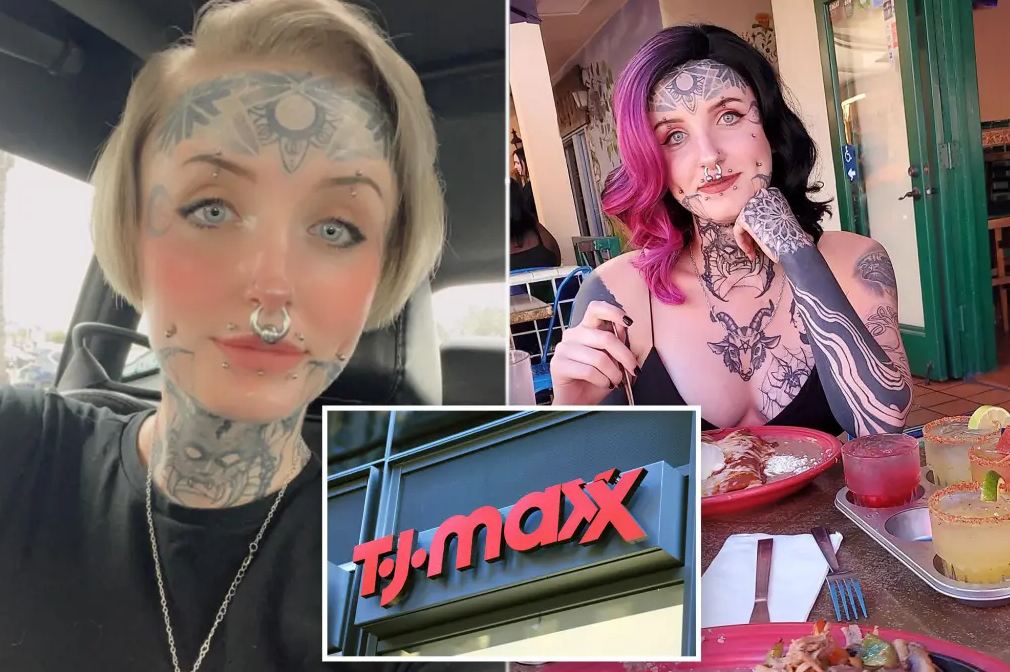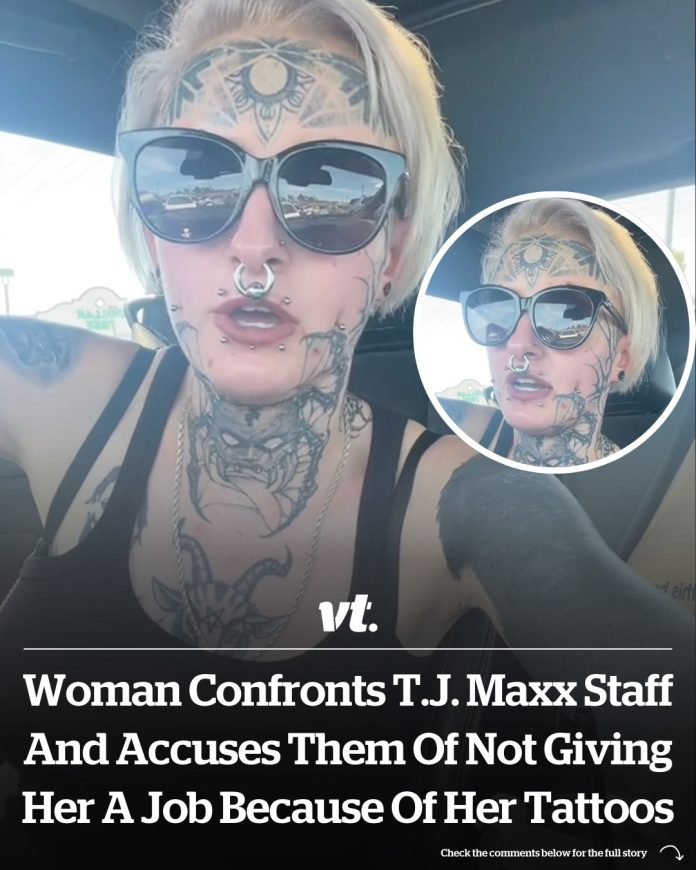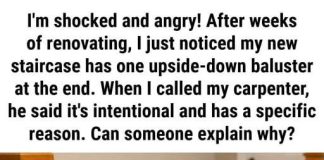Ash Putnam, a 23-year-old woman from California, recently applied for a position at T.J. Maxx but received an automated rejection email. Feeling that her visible tattoos might have influenced the decision, she visited the store to inquire further. The hiring manager cited a lack of experience as the reason for her rejection, denying that her tattoos played any role. However, Putnam remained skeptical, believing her body art was a significant factor in the decision.
Social Media Reaction and Public Debate
Putnam shared her experience on TikTok, expressing frustration over the perceived discrimination. Her video quickly went viral, amassing over 7 million views and sparking widespread discussion. While some viewers sympathized with her, others argued that visible tattoos, especially on the face and neck, could be deemed unprofessional in customer-facing roles.

Broader Implications on Employment Practices
This incident highlights the ongoing debate about body art in the workplace. A 2018 LinkedIn survey revealed that 40% of respondents admitted to rejecting job candidates solely based on visible tattoos. Despite the growing popularity of tattoos, with nearly one-third of American adults sporting permanent ink as of 2023, biases persist in certain industries.
Personal Expression vs. Professional Expectations
Putnam’s case underscores the tension between personal expression and professional expectations. While tattoos are increasingly accepted in many cultural contexts, some employers still view them as unprofessional, potentially affecting hiring decisions. This bias means skilled candidates might be passed over because of their appearance, reinforcing a cycle of exclusion for those who express themselves through tattoos.
Application Rejection Leads to Confrontation
Ash Putnam, a 23-year-old from California, applied for a retail position at a local T.J. Maxx store. After receiving an automated rejection email, she visited the store in person to inquire why her application was declined. According to Putnam, she suspected that her heavily tattooed appearance—including face and neck tattoos—may have influenced the decision. During the confrontation, which she recorded and later posted to TikTok, the hiring manager told her that the rejection was due to a lack of relevant experience, not her tattoos. Still, Putnam expressed frustration, saying she felt judged and excluded because of her appearance. “They didn’t even give me a chance,” she stated in the video.
Viral Video Divides Public Opinion
Putnam’s TikTok video quickly went viral, amassing millions of views and sparking a polarized debate. Many users came to her defense, arguing that tattoos are a form of personal expression and shouldn’t impact employability. Others sided with the employer, stating that visible tattoos—particularly on the face—can conflict with professional image standards in retail settings.
“You can’t expect every company to be on board with that look,” one commenter wrote. Another replied, “Your skills should matter more than your skin.”
The Cultural Divide Over Tattoos
Tattoos have become more mainstream in recent decades, especially among younger generations. According to a 2023 Pew Research study, around 32% of American adults have at least one tattoo, and 22% have multiple. Despite the growing popularity, visible tattoos still carry a stigma in certain professional sectors, particularly in customer-facing roles like retail, hospitality, and corporate services. A 2018 LinkedIn survey found that 40% of hiring managers admitted to being less likely to hire a candidate with visible tattoos, even when the tattoos were not offensive. This data suggests a persistent bias that can lead to talented individuals being overlooked due to appearance rather than merit.

Conclusion
Ash Putnam’s experience serves as a catalyst for discussions about inclusivity and fairness in hiring practices. As societal norms evolve, it becomes imperative for employers to reassess their perceptions and ensure that judgments are based on qualifications and skills rather than appearances.

















